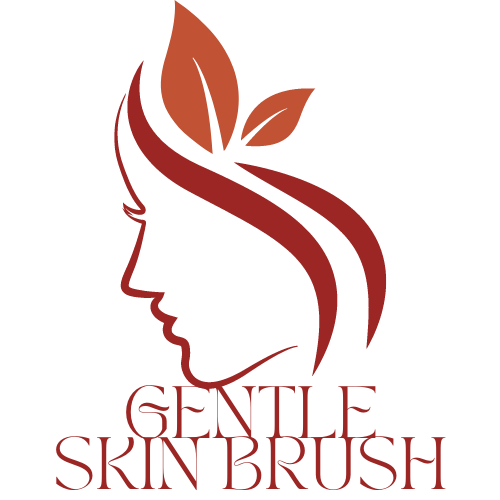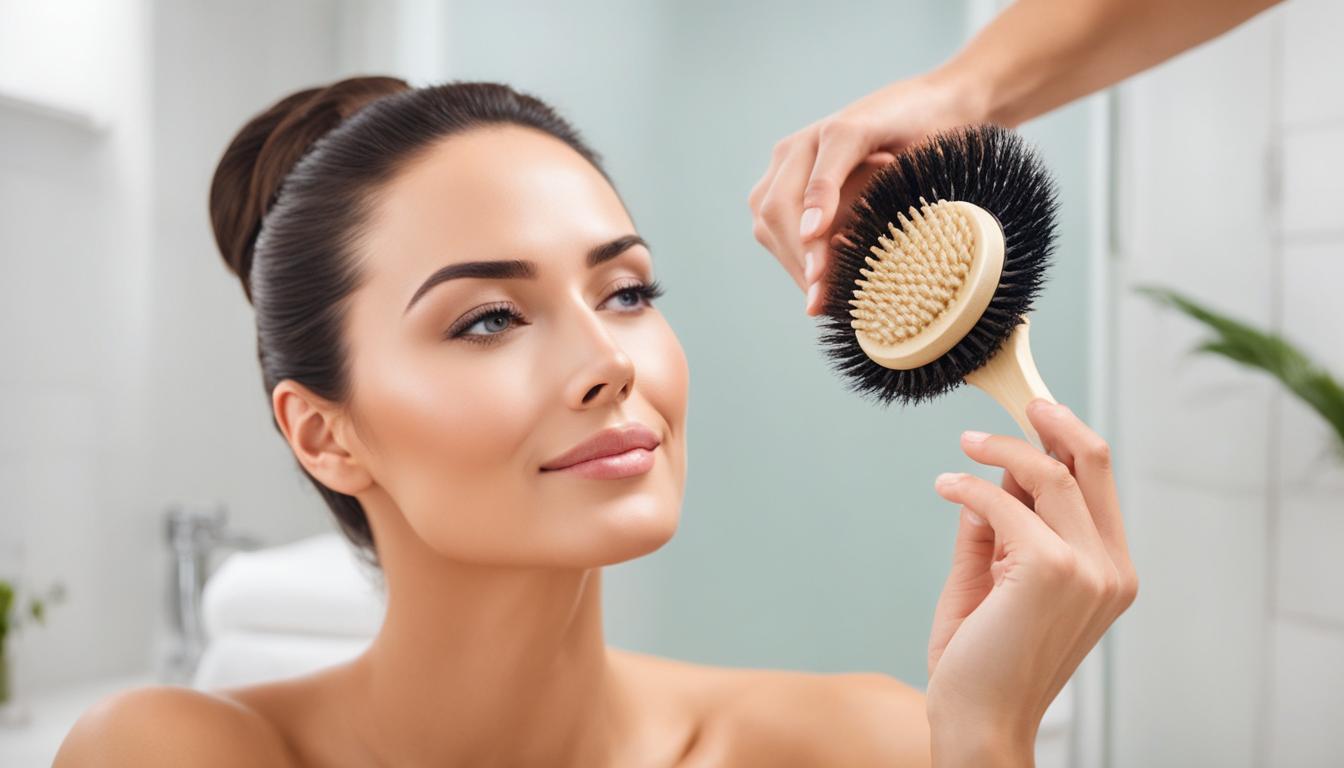Facial brushes have gained popularity in skincare routines, but are they suitable for sensitive skin? Facial cleansing brushes are devices used to clean the face thoroughly and provide mechanical exfoliation. While they can benefit most skin types, it is crucial to choose the right brush and technique to avoid irritation. This comprehensive guide will explore the effectiveness of facial brushes for sensitive skin and provide recommendations for gentle and effective skincare tools.
Contents
- 1 The Benefits of Facial Brushes for Sensitive Skin
- 2 Choosing the Right Facial Brush for Sensitive Skin
- 3 Proper Usage and Care of Facial Brushes for Sensitive Skin
- 4 Evaluating the Frequency of Facial Brush Use on Sensitive Skin
- 5 Addressing Potential Concerns for Sensitive Skin
- 6 Alternatives to Facial Brushes for Sensitive Skin
- 7 Conclusion
- 8 FAQ
- 8.1 Are facial brushes good for sensitive skin?
- 8.2 What are the benefits of using facial brushes for sensitive skin?
- 8.3 How do I choose the right facial brush for sensitive skin?
- 8.4 How should I properly use and care for a facial brush for sensitive skin?
- 8.5 How often can I use a facial brush on sensitive skin?
- 8.6 Are there any potential concerns with using facial brushes on sensitive skin?
- 8.7 Are there alternative skincare tools for sensitive skin?
- 9 Source Links
Key Takeaways:
- Facial brushes can offer a deeper and more thorough cleanse compared to using just fingers or a washcloth.
- They stimulate the surface of the skin, making it more radiant and smooth.
- Proper cleaning and regular replacement of the brush head are essential to prevent bacteria buildup.
- Using a gentle cleanser and avoiding physical or chemical exfoliants with the brush is important.
- The frequency of use should be based on skin type, with caution exercised for sensitive skin.
The Benefits of Facial Brushes for Sensitive Skin
Incorporating a facial brush into your skincare routine can offer several benefits for sensitive skin. These devices provide mechanical exfoliation and a deeper cleanse compared to using just fingers or a washcloth. However, it is important to choose a brush specifically designed for sensitive skin, with gentle bristles and adjustable power settings.
When used correctly, facial brushes can help speed up the skin renewal process and minimize the appearance of pores. The brushes stimulate the surface of the skin, making it more radiant and smooth. The lymphatic system is also stimulated, aiding in skin detoxification. However, it is crucial to avoid aggressive exfoliation, as this can further irritate sensitive skin.
Cleansing brushes can be particularly beneficial for those with acne-prone skin. They help eliminate excess sebum and can contribute to a clearer complexion. However, caution should be exercised around cystic acne to avoid aggravating the condition.
It is essential to properly clean and replace the brush head regularly to prevent bacteria buildup. Additionally, choosing a gentle cleanser that works well with your skin and avoiding physical or chemical exfoliants when using the brush is crucial.
| Key Benefits of Facial Brushes for Sensitive Skin |
|---|
| Provides deeper cleansing compared to fingers or washcloth |
| Speeds up skin renewal process |
| Tightens skin and minimizes the appearance of pores |
| Stimulates the lymphatic system for skin detoxification |
| Aids in treating acne-prone skin by eliminating excess sebum |
When incorporating a facial brush into your routine, it’s important to follow the instructions provided with the device. Avoid applying too much pressure on the skin, as this can lead to irritation. The frequency of use should be based on your skin type, with oily skin types being able to use the brush more frequently compared to dry and sensitive skin types.
Lastly, it is not recommended to use the same brush head on both the face and body. Doing so can transfer bacteria and dead skin cells, compromising the effectiveness and hygiene of the brush.
Choosing the Right Facial Brush for Sensitive Skin
When selecting a facial brush for sensitive skin, it is essential to consider certain factors to ensure the best results. Sensitive skin requires extra care and attention, so choosing a brush that is specifically designed for this skin type is crucial. Look for brushes that are labeled as “sensitive skin-friendly” or “facial cleansing brushes for sensitive skin.” These brushes are typically made with softer bristles that are gentle on the skin and less likely to cause irritation.
In addition to gentle bristles, it is also important to choose a brush with adjustable settings. This allows you to customize the intensity of the brush according to your skin’s sensitivity. Opt for brushes with multiple speed or vibration settings, as this flexibility allows you to find the most comfortable and effective level for your skin.
Another factor to consider is the brush head. Different brush heads offer various benefits for the skin. For sensitive skin, it is advisable to choose brush heads with smaller bristle size, as they provide a softer and more delicate cleansing experience. Additionally, some brush heads come with additional features like silicone bristles or massaging nodules, which can be beneficial for sensitive skin as they provide a gentler exfoliation.
| Factors to Consider | Benefits |
|---|---|
| Soft bristles | Gentle on sensitive skin, less likely to cause irritation |
| Adjustable settings | Allows customization of intensity for individual skin sensitivity |
| Brush head features | Offers additional benefits like silicone bristles or massaging nodules for gentler exfoliation |
Remember, when using a facial brush for sensitive skin, it is important to be gentle and not apply too much pressure. Start with the lowest setting and gradually increase if needed. Avoid using harsh exfoliants or abrasive cleansers with the brush, as they can further irritate sensitive skin. Finally, always clean and replace the brush head regularly to prevent bacteria buildup and maintain optimal hygiene.
Proper Usage and Care of Facial Brushes for Sensitive Skin
To maximize the benefits and minimize potential risks, it is crucial to use facial brushes for sensitive skin correctly and maintain them properly. Facial cleansing brushes are effective tools for deep cleansing and gentle exfoliation, but they should be used with care to avoid irritation or damage to sensitive skin.
When using a facial brush, it is important to choose a brush head that is suitable for sensitive skin. Look for brushes with soft bristles or silicone bristles, as these provide a gentle cleansing experience without causing excessive friction on the skin. Avoid using brushes with coarse or stiff bristles, as they can be too harsh for sensitive skin.
When applying the facial brush to your skin, use gentle, circular motions. Apply light pressure and avoid scrubbing vigorously, as this can lead to redness and irritation. It’s also important to avoid using physical or chemical exfoliants along with the brush, as this can further sensitise the skin.
After each use, thoroughly clean the brush head to remove any remaining dirt, oil, or makeup. Depending on the brush model, you may be able to detach the brush head for a more thorough cleaning. Regularly replacing the brush head is essential to prevent bacteria buildup and maintain optimal hygiene. It is recommended to replace the brush head every three to four months, or sooner if the bristles become worn or damaged.
| Proper Usage and Care Tips: |
|---|
| Choose a brush head suitable for sensitive skin with soft or silicone bristles. |
| Use gentle, circular motions with light pressure. |
| Avoid using physical or chemical exfoliants in conjunction with the brush. |
| Thoroughly clean the brush head after each use to remove dirt, oil, and makeup. |
| Replace the brush head every three to four months or sooner if bristles become worn or damaged. |
Conclusion:
Facial brushes can be beneficial for sensitive skin when used correctly and with caution. By choosing a brush head suitable for sensitive skin, using gentle motions with light pressure, and maintaining proper hygiene, you can enjoy the deep cleansing and exfoliating benefits of facial brushes without compromising the health of your skin.
Evaluating the Frequency of Facial Brush Use on Sensitive Skin
Finding the right frequency of facial brush use is essential to cater to the needs of sensitive skin. While facial brushes can provide many benefits, overuse or improper use can lead to irritation and redness. It’s important to strike a balance between reaping the rewards of using a facial brush and ensuring that the skin’s delicate balance is not disrupted.
For individuals with sensitive skin, a gentle approach is key. Using a facial brush once or twice a week is generally recommended to avoid overstimulation. This frequency allows for a thorough cleanse and exfoliation without causing unnecessary irritation.
However, it’s important to note that everyone’s skin is unique and may react differently to facial brush usage. Some individuals may find that using a brush once a week is sufficient, while others may be able to tolerate using it every other day. It’s crucial to listen to your skin and adjust the frequency accordingly.
Gentle Skincare Routine for Sensitive Skin
Incorporating a gentle skincare routine alongside facial brush usage can further support the needs of sensitive skin. Opt for mild cleansers and avoid harsh exfoliants or abrasive ingredients that may aggravate the skin. Follow up with a soothing moisturizer to hydrate and protect the skin’s barrier.
Remember to be mindful of the pressure applied during the brushing process. It’s best to use a light touch and let the bristles do the work. Aggressive scrubbing can lead to redness and irritation, especially on sensitive skin.
| Gentle Skincare Tips for Sensitive Skin |
|---|
| Choose a facial brush with soft bristles specifically designed for sensitive skin. |
| Cleanse your brush thoroughly after each use to remove any residual bacteria. |
| Replace the brush head regularly to prevent bacteria buildup. |
| Use the brush in conjunction with a gentle cleanser suitable for sensitive skin. |
| Pay attention to your skin’s response and adjust the frequency of use accordingly. |
By incorporating a facial brush into a gentle skincare routine and evaluating the frequency of use, individuals with sensitive skin can enjoy the benefits of a more thorough cleanse and exfoliation. Remember to listen to your skin’s needs and make adjustments as necessary to maintain a healthy and balanced complexion.
Addressing Potential Concerns for Sensitive Skin
While facial brushes can be beneficial for sensitive skin, it’s important to address potential concerns and take necessary precautions. Sensitive skin requires extra care and attention to ensure that any skincare tools or treatments do not cause irritation or inflammation. Here are some key considerations when using facial brushes on sensitive skin:
- Choose a gentle brush: Opt for facial brushes specifically designed for sensitive skin. These brushes typically have softer bristles that are less likely to cause friction or irritation. Look for brushes with synthetic bristles that are gentle on the skin and suitable for daily use.
- Use the right pressure: Avoid applying excessive pressure when using a facial brush. Gentle, circular motions are sufficient to cleanse and exfoliate the skin without causing unnecessary irritation. Let the brush do the work, and allow the bristles to glide smoothly across the surface of the skin.
- Clean and replace brush heads regularly: It’s essential to keep your facial brush clean to prevent bacteria buildup. Cleanse the brush head thoroughly after each use and replace it regularly, following the manufacturer’s instructions. This practice helps maintain the hygiene of the brush and minimizes the risk of skin issues.
- Avoid active ingredients: When using a facial brush on sensitive skin, it’s best to avoid using physical or chemical exfoliants simultaneously. The exfoliating action of the brush alone is sufficient for sensitive skin. Using additional exfoliating products can lead to overstimulation and potential skin damage.
By following these tips, you can safely incorporate a facial brush into your skincare routine, even if you have sensitive skin. However, it’s important to monitor your skin’s reaction and adjust your routine accordingly. If you experience any discomfort, redness, or increased sensitivity, discontinue use and consult a dermatologist for guidance.
Expert Quote
“Facial brushes can be a valuable tool for individuals with sensitive skin, as long as they are used correctly and with caution. It’s crucial to choose a gentle brush, use the right pressure, and maintain good hygiene to minimize any potential risks. Always listen to your skin and make adjustments as needed.” – Dr. Emily Johnson, Dermatologist
Comparing Different Facial Brushes for Sensitive Skin
| Brand | Features | Price |
|---|---|---|
| Brand A | Soft bristles, adjustable speed settings, timer function | $50 |
| Brand B | Silicone bristles, waterproof, rechargeable | $80 |
| Brand C | Ultra-gentle bristles, suitable for daily use, travel-friendly | $30 |
Note: Prices are approximate and may vary depending on the retailer.
Alternatives to Facial Brushes for Sensitive Skin
If facial brushes are not suitable for your sensitive skin, there are alternative skincare tools and techniques available to achieve gentle exfoliation. These alternatives can provide the same benefits as facial brushes without causing irritation or discomfort. Let’s explore some of these alternatives:
Gentle Exfoliating Scrubs
One of the easiest alternatives to facial brushes is a gentle exfoliating scrub. These scrubs contain fine particles or ingredients like fruit enzymes that help to remove dead skin cells and unclog pores. Look for scrubs that are specifically formulated for sensitive skin, as they will be less abrasive and more suitable for your needs.
| Alternative | Benefits |
|---|---|
| Gentle Exfoliating Scrubs | – Removes dead skin cells – Unclogs pores – Less abrasive for sensitive skin |
| Chemical Exfoliants | – Gentle yet effective exfoliation – Suitable for sensitive skin – Helps improve skin texture and tone |
| Soft Cleansing Brushes | – Delicate bristles for sensitive skin – Provides a gentle cleanse – Easy to use and maintain |
Chemical Exfoliants
Chemical exfoliants like alpha hydroxy acids (AHAs) and beta hydroxy acids (BHAs) are another alternative to facial brushes. These exfoliants work by dissolving the bonds between dead skin cells, allowing them to be easily removed without scrubbing the skin. AHAs are particularly effective at brightening the complexion and improving skin texture, while BHAs are known for their ability to unclog pores and reduce inflammation.
Soft Cleansing Brushes
If you still prefer using a brush for cleansing but find facial brushes too harsh, opt for soft cleansing brushes specifically designed for sensitive skin. These brushes have softer bristles that are gentle on the skin while still providing a thorough cleanse. They are easy to use and maintain, making them a great alternative for those with sensitive skin.
Remember to always listen to your skin and adjust your skincare routine accordingly. If any tool or product causes irritation or discomfort, discontinue use and consult with a dermatologist. Each individual’s skin is unique, so finding the right exfoliation method for your sensitive skin may require some trial and error. Be patient and gentle with your skin, and you’ll find the perfect alternative to facial brushes that suits your needs.
Conclusion
Facial brushes can be a valuable addition to a gentle and effective skincare routine for sensitive skin when chosen and used correctly. These devices offer a deeper and more thorough cleanse compared to using just fingers or a washcloth, making them ideal for those looking to achieve radiant and smooth skin. By stimulating the surface of the skin, facial brushes can help speed up the skin renewal process, tighten skin, and minimize the appearance of pores.
However, it is important to note that not all facial brushes are suitable for sensitive skin. For those with very sensitive or inflamed skin, aggressive exfoliation can worsen irritation. It is crucial to select brushes with gentle bristles and avoid using brushes with coarse bristles or excessive power settings. By being mindful of these factors, facial brushes can effectively enhance the overall health and appearance of sensitive skin.
Proper usage and care are also essential when incorporating facial brushes into a skincare routine. It is important to follow the instructions provided by the manufacturer and avoid applying excessive pressure on the skin. Regularly cleaning and replacing the brush head is crucial to prevent bacteria buildup and maintain optimal hygiene.
Furthermore, the frequency of facial brush use should be tailored to individual skin types. Oily skin types may be able to use facial brushes more often compared to dry and sensitive skin types. It is recommended to consult with a dermatologist or skincare professional to determine the most suitable frequency for optimal results.
In conclusion, when chosen and used correctly, facial brushes can provide numerous benefits for sensitive skin. By incorporating these devices into a gentle skincare routine and following proper usage and care guidelines, individuals with sensitive skin can enjoy the advantages of improved skin renewal, tightened skin, and minimized pores. Remember to choose brushes specifically designed for sensitive skin and avoid using harsh physical or chemical exfoliants in conjunction with the brush. With the right approach, facial brushes can be a valuable tool in achieving a healthy and radiant complexion for those with sensitive skin.
FAQ
Are facial brushes good for sensitive skin?
Facial brushes can benefit sensitive skin as long as they are gentle and not too aggressive. It is important to choose brushes specifically designed for sensitive skin.
What are the benefits of using facial brushes for sensitive skin?
Facial brushes provide a deeper and more thorough cleanse, stimulate the surface of the skin for a radiant and smooth appearance, aid in skin detoxification, and can help tighten skin and minimize the appearance of pores.
How do I choose the right facial brush for sensitive skin?
Look for facial brushes that are specifically designed for sensitive skin and offer gentle exfoliation. Consider the features and brush heads that suit your needs, and choose a brush with bristles that are not too coarse.
How should I properly use and care for a facial brush for sensitive skin?
Follow the instructions provided with your facial brush and avoid applying too much pressure on the skin. Clean and replace the brush head regularly to prevent bacteria buildup. Use a gentle cleanser and avoid using physical or chemical exfoliants with the brush.
How often can I use a facial brush on sensitive skin?
The frequency of use should be based on your skin type. Oily skin types can use the brush more often than dry and sensitive skin types. It is important to listen to your skin and adjust the frequency accordingly.
Are there any potential concerns with using facial brushes on sensitive skin?
Aggressive exfoliation can add to irritation for those with very sensitive or inflamed skin. Caution should be exercised around cystic acne. It is important to choose a gentle cleanser and not apply too much pressure on the skin.
Are there alternative skincare tools for sensitive skin?
There are alternative skincare tools and methods for sensitive skin, such as gentle exfoliation techniques and other effective skincare tools that can be used in conjunction with or as alternatives to facial brushes.





Leave a Reply